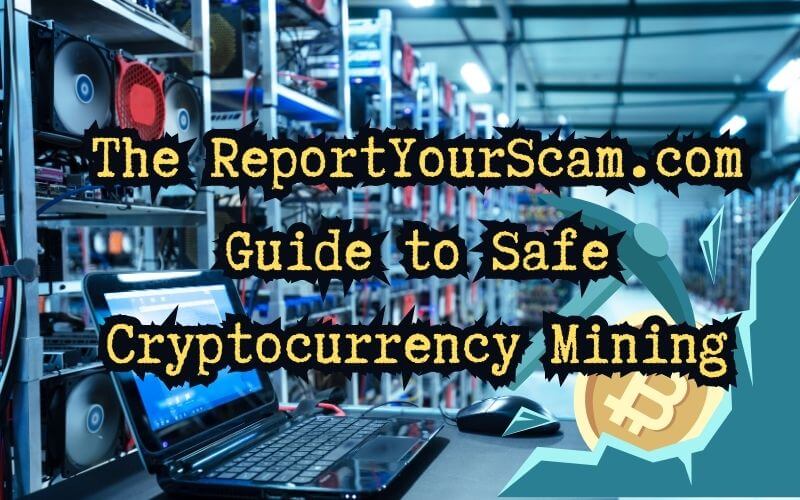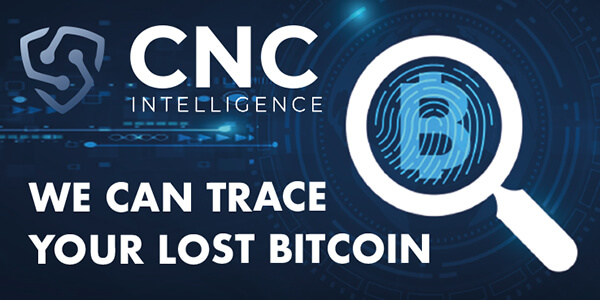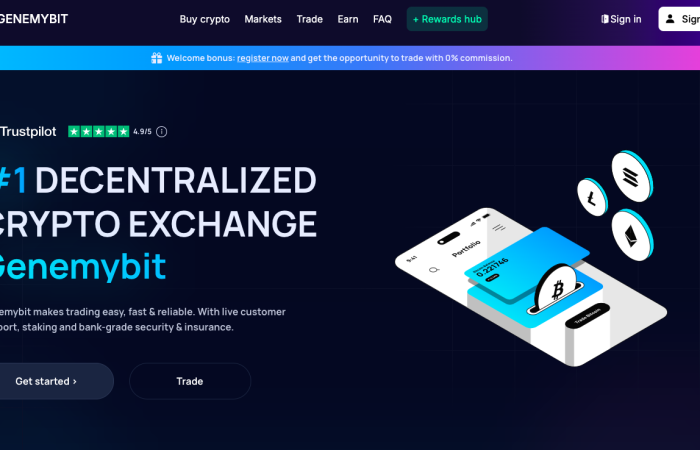Cryptocurrency mining is a fundamental process that facilitates the operation and security of decentralized digital currencies such as Bitcoin and various altcoins. It involves using computer hardware to solve complex mathematical problems, validating transactions, and securing the integrity of the cryptocurrency network. In return for their efforts, miners are rewarded with freshly minted cryptocurrency coins and transaction fees paid by users. Our exploration dives deep into a murkier aspect of this innovative realm: Bitcoin mining scams in particular and crypto mining scams in general.
As the allure of the cryptocurrency world grows, an unfortunate proliferation of deceptive practices has emerged, preying on individuals seeking to participate in mining activities. Scams manifest in various forms, including fraudulent mining platforms, cloud mining services offering unrealistic returns, and deceptive initial coin offerings (ICOs) related to mining.
Navigating this landscape requires a robust awareness and a discerning eye. It’s crucial to approach mining opportunities with heightened vigilance, scrutinizing the legitimacy and credibility of platforms and services. Equipping oneself with the knowledge to discern genuine opportunities from malicious scams is instrumental in safeguarding one’s investments and interests in the volatile yet promising arena of cryptocurrency mining. Our endeavor aims to shed light on the various facets of mining scams, enabling readers to make informed and secure decisions in their cryptocurrency mining pursuits.
If you fell victim to a Bitcoin or cryptocurrency mining scam, please help protect the community by sharing your story in a reply below this article. For qualified users, we may recommend getting a free consultation with a cybersecurity company regarding the feasibility of recovering the funds.

Understanding the Basics
Bitcoin and cryptocurrency mining are the backbones of blockchain networks, allowing them to operate securely and efficiently. But what is Bitcoin mining, and how does it intertwine with crypto mining? Mining is the process through which new cryptocurrency transactions are verified and added to a blockchain ledger. It involves solving complex mathematical problems requiring powerful computer hardware, and in return, miners are rewarded with newly minted cryptocurrency tokens and transaction fees.
Various methods of mining exist, with cloud mining becoming increasingly popular. Cloud mining allows individuals to participate in mining activities without owning physical hardware. Instead, they can purchase mining power from a remote data center to earn cryptocurrencies remotely. However, while cloud mining presents an accessible entry point into the crypto-mining arena, it also harbors risks, particularly regarding the prevalence of fraudulent platforms offering deceptive cloud mining services.
By understanding the different facets of Bitcoin and crypto mining, including the diverse mining methods such as cloud mining, individuals can navigate the cryptocurrency landscape with informed perspectives, ensuring that they participate securely and effectively within this dynamic ecosystem. This knowledge is essential in deciphering legitimate mining opportunities from potential scams that foster a secure and transparent cryptocurrency mining environment.
Unveiling Bitcoin Mining Scams
In the labyrinth of Bitcoin mining, various scams have emerged, casting shadows of doubt and fostering skepticism. Understanding these deceptive practices is paramount to navigating the sector securely and efficiently. The question, “Is Bitcoin mining legit?” becomes central to discussions, with varying instances painting a complex portrait of legitimacy and deceit.
A prevalent form of deceit revolves around fake Bitcoin mining sites. These platforms project an illusion of legitimacy, offering mining services that ostensibly generate substantial returns. They craft persuasive narratives, boasting sophisticated technologies and promising profitability. However, beneath the façade lies a manipulative scheme to misappropriate users’ funds.
Red flags indicative of a Bitcoin mining scam include extravagant guarantees of profits with minimal or no risk. Such too-good-to-be-true propositions should raise suspicions. Moreover, the lack of transparency regarding mining operations, such as undisclosed mining facilities or unspecified mining strategies, signifies potential deceit. Additionally, the absence of user reviews or overly curated, positive testimonials on platforms warrants scrutiny.
A diligent and informed approach becomes an invaluable asset in deciphering the authenticity of Bitcoin mining operations. By recognizing the red flags and understanding the standard deceptive practices pervading the mining landscape, individuals can safeguard their interests, ensuring their mining endeavors are anchored in transparency, integrity, and legitimacy. Thus, while navigating the Bitcoin mining terrain, vigilance and discernment emerge as critical tools in distinguishing genuine mining opportunities from the tumultuous seas of scams and fraudulent schemes.
Diving Deeper: Other Crypto Mining Scams
In the diverse ecosystem of cryptocurrencies, Bitcoin is the flagship, but numerous altcoins also inhabit this digital realm. Unfortunately, the expansion of the cryptocurrency landscape has been paralleled by a proliferation of scams impacting various digital assets. “Crypto mining scams” have become an unsettling yet prevalent chapter in cryptocurrency evolution, fostering an environment of mistrust and vigilance.
“Cryptocurrency mining scams” are not solely confined to Bitcoin. With their unique attributes and technologies, Altcoins have also become common targets for malicious actors seeking to exploit the enthusiasm surrounding emerging digital currencies. Coins such as Ethereum, Litecoin, and various others have been entangled in the deceptive web woven by scam artists. These fraudulent schemes often mirror those seen in Bitcoin scams, manifesting as fake mining pools or cloud mining services offering exaggerated returns and employing manipulative tactics to lure unsuspecting investors.
Scammers often prey on the allure of lesser-known altcoins, promising groundbreaking technologies and unmatched profitability. This manipulative narrative is crafted to ensnare those seeking to diversify their crypto portfolios, aiming to participate in the next significant wave of digital asset appreciation.
Navigating the complexities of altcoin mining necessitates a discerning approach. Understanding the landscape, recognizing the hallmarks of authenticity, and being vigilant for red flags become essential strategies in safeguarding one’s investments from the destructive paths of scams. In a realm of innovation and promise, the shadows of deceit linger, necessitating continuous awareness and critical evaluation to ensure that the journey through the cryptocurrency mining world remains secure and prosperous.
The Intricacies of Cloud Mining Scams
In the intricate tapestry of cryptocurrency mining, “cloud mining” emerges as a prominently woven thread, enticing investors with the promise of hassle-free mining without the burden of managing sophisticated hardware. However, beneath the appealing facade of “bitcoin cloud mining” and “crypto cloud mining,” a sinister spectrum of scams lurks, meticulously designed to exploit and deceive.
“Cloud mining scams” manifest through various deceptive practices, often operating platforms that mimic legitimacy, offering contracts that purportedly lease mining power from remote data centers. Enticed by the promise of lucrative returns and minimal involvement, investors may be tangled in these fraudulent schemes. The illusory nature of these scams lies in the presentation of persuasive yet hollow promises and a labyrinth of misleading information that obscures their malicious intent.
Such scams cleverly navigate the realms of believability, often showcasing sophisticated websites, compelling testimonials, and an array of ‘too-good-to-be-true’ investment plans. These platforms frequently lack transparency, obfuscating essential details and shrouding their operations in uncertainty. Investors might be lured by the allure of effortless profits, only to find their funds vanishing into the abyss of fraudulence.
Recognizing the red flags in cloud mining ventures becomes an essential safeguard against falling victim to scams. A discerning approach, diligent research, and a critical evaluation of credibility are paramount in navigating the cloud mining landscape. By cultivating a discerning awareness and a vigilant mindset, investors can traverse the terrains of cryptocurrency mining with enhanced security, ensuring that their endeavors are anchored in authenticity and safeguarded against the shadows of deceit.
Insight into Liquidity and Defi Mining Scams
In the dynamic ecosystem of cryptocurrency, DeFi (Decentralized Finance) and liquidity mining have blossomed as innovative frontiers, redefining the paradigms of investment and asset management. Yet, with innovation comes vulnerability, particularly to the menacing shadows of scams, notably “liquidity mining scams” and “defi liquidity mining scams.”
Liquidity mining, a catalyst in the DeFi revolution, is an approach that incentivizes investors to supply liquidity to decentralized exchanges, earning rewards in return. But what is liquidity mining precisely? It is a practice where users stake or lend their crypto assets in a liquidity pool, facilitating decentralized exchanges and earning rewards or fees in compensation.
Scammers lurk in these innovative corridors, orchestrating sophisticated “liquidity mining scams.” They craft deceptive pools or platforms, often mirroring the attributes of legitimacy, ensnaring unsuspecting investors in a web of fraud. “Defi liquidity mining scams” particularly resonate with a tone of deceit, leveraging the allure of DeFi to propagate fraudulent schemes. They manifest in various forms, including rug pulls and exit scams, leaving investors in a vacuum of loss and betrayal.
These scams paint a risk landscape, necessitating a vigilant and discerning eye. Their relevance in the crypto mining realm underscores a significant reality: the necessity for diligence, robust knowledge, and a meticulous approach in navigating the labyrinth of liquidity and DeFi mining. By cultivating awareness and fostering a discerning lens, investors can shield themselves against the deceptive allure of scams, navigating the realms of DeFi and liquidity mining with enhanced security and confidence.
Practical Strategies to Avoid Mining Scams
Navigating the cryptic world of cryptocurrency mining requires insight, vigilance, and strategic forethought to sidestep the pitfalls of Bitcoin mining scams and crypto mining scams. Armoring oneself with practical knowledge and adopting scrupulous strategies is paramount in sculpting a secure pathway through the dynamic landscapes of Bitcoin and cryptocurrency mining.
Firstly, conduct meticulous research to ensure the legitimacy and reputation of mining platforms or services. Dive deeply into reviews, explore the authenticity of their digital presence, and seek referrals or insights from seasoned practitioners within the cryptocurrency communities. Fostering a probing mindset is essential to sift through the layers of authenticity, enabling individuals to unveil potential red flags or inconsistencies that earmark scams.
Secondly, cultivate an awareness of common deceptive practices and fraudulent patterns within the mining sector. Be on the lookout for too-good-to-be-true promises of profitability, obscure or hidden fees, and the lack of transparency or verifiable credentials. A discerning eye paired with a mindful awareness can act as a sturdy shield against the deceptive allure of scam endeavors.
Additionally, continuously learn and stay abreast of evolving scam tactics and industry trends. The cryptosphere is dynamic, and scammers continuously innovate their strategies. Keeping a pulse on emerging knowledge and cultivating a continuous learning mindset is fundamental in fostering a resilient defense against evolving scam tactics.
In the journey through the volatile terrains of cryptocurrency mining, embodying a mindset of caution, continuous learning, and analytical discernment is essential in fortifying oneself against the menacing shadows of scams, ensuring a pathway marked by security, integrity, and authentic success.
Complaints We Received
Here’s a detailed complaint we received regarding a mining scam at miner-us.co:
Approximately 40 days ago, I was introduced to a site named United States Miner by a friend. I engaged in several discussions via Telegram and the site’s support system, and I have maintained all relevant documentation of these conversations. I began investing capital through multiple steps.
I had initially trusted the platform after verifying their official licenses from the state of New York. However, the licensing agency has proven to be entirely unresponsive. A few days after making my first $10 withdrawal to test the site’s functionality, I recommended the platform to several friends, three of whom began investing.
I want to mention that shortly after my investment, I received a message on Telegram from the site stating that my account required an upgrade for activation, hindering my ability to withdraw the frozen balance. They apologized and stated the message was sent in error after I raised concerns.
However, on 07/09/2023, three friends who invested in my recommendation received messages stating that their cloud mining server’s CPU was overloaded. This apparent issue prevented them from collecting revenue, urging them to deposit varying amounts of USDT to resolve the problem.
After raising concerns, given that two of my friends had only recently invested, the platform assured us it was a system bug that would be resolved within 12 hours. Although they addressed the issues for two of my friends, they failed to fix the problem for another friend who was asked to deposit more money despite his withdrawal requests.
The platform, after some back-and-forth, agreed to refund his money, deducting the interest earned over three months. However, they later demanded a deposit, stating it was a systematic requirement. They claimed to lack any legal or specialized algorithms for account management, insisting that the system randomly selects accounts for these actions.
They operate a Telegram channel with over six thousand members, which seems dubious. I can provide the channel link for further investigation into their advertising strategies aimed at attracting audiences.
Recently, the accounts of two other friends and mine were blocked, with demands for further deposits under various pretexts. I will provide screens of hash rate purchases, deposits, and withdrawals for your review.
On October 13, 2023, we received the following complaint from a person who reported being scammed for $127 (10000 PHP):
The individual, Casandra Willie, introduced me to a platform called Bitcoin Mining. She assured me that investing a small sum of money would yield growth. True to her words, it did grow, but there was a catch. Before I could claim the profits, a transfer fee amounting to 17k or $299 USD was required.
I queried for alternative ways to claim the profit, and she suggested that paying even half of the amount would suffice for me to access the profits. However, this led me to a state of sorrow. Despite her promises and reassurances, the reality was harsh and contrary to her words. She insisted that to claim the profits, the total payment of 17k had to be made upfront. Her deceptive assurances left me disappointed, as the hoped-for profit never materialized, showcasing the untrue nature of her promises and the platform.
If you have also been scammed by a crypto mining scam or a Bitcoin mining scam, please share your story by commenting below!
Conclusion
Navigating the intricate landscape of cryptocurrency mining demands a fortified arsenal of awareness and knowledge. The dynamic realm of crypto mining is shadowed by the looming uncertainties of scams and deceptive practices, making vigilance an indispensable ally for participants. Scams, enveloped in the guise of lucrative opportunities, often lurk in the crevices of the mining sector, ready to prey on the uninformed and the unsuspecting.
In the face of such potential threats, equipping oneself with a robust understanding of the fundamental mechanisms of cryptocurrency and mining practices emerges as a powerful defense. Harnessing the power of critical insight through comprehensive research and due diligence is pivotal. This involves a meticulous exploration of mining opportunities, an evaluation of their authenticity, and a discerning assessment of their credibility.
Encouragement is extended to readers to embrace a proactive approach, fostering a culture of inquisitive investigation and thoughtful scrutiny. Before diving into mining activities, it is crucial to use thorough research, questioning, and evaluation tools to safeguard against the shadows of deception and risk. An empowered and enlightened participant, armored with a wealth of well-researched knowledge and a vigilant mind, is better positioned to traverse the tumultuous terrains of crypto mining with enhanced security and confidence. When navigated with an empowered sense of awareness and a fortified knowledge base, the journey through the crypto-mining landscape promises to be a more secure and informed expedition.
Frequently Asked Questions (FAQs): Crypto Mining Scams
What is crypto mining?
Crypto mining is the process of verifying and adding transactions to the blockchain digital ledger, and in return, miners earn cryptocurrencies. It requires powerful hardware and software to solve complex mathematical problems.
Is Bitcoin mining real?
Yes, bitcoin mining is a legitimate practice. However, it’s essential to conduct research and ensure that you invest in a trustworthy mining operation. Some fraudulent schemes disguise themselves as mining operations to scam investors.
Is cloud mining legit?
Cloud mining can be legitimate, where users rent mining power in a remote data center. However, the cloud mining space is rife with scams. Ensure to verify the authenticity of the cloud mining services before engaging.
How do I identify mining pool scams?
Mining pool scams often promise high returns, lack transparency, and operate without verifiable track records. Look for reviews, check their website for professionalism and clarity, and ensure they have a clear payout structure.
Are there any signs of Bitcoin cash mining scams?
Red flags for scams include promises of high profitability, lack of transparency, and no proof of equipment or mining results. Be wary of platforms that seem too good to be true, and conduct thorough research.
Is Bitcoin cloud mining scam common?
Yes, there are many fraudulent Bitcoin cloud mining platforms. These scams lure investors with promises of high returns and low fees but lack transparency and verifiable mining operations.
What should I know about cryptocurrency trading to avoid scams?
Educate yourself about the basics of cryptocurrency trading, conduct research on platforms, look for secure and well-reputed exchanges, and be wary of platforms promising unrealistic profits.
Scams related to encrypted currencies often involve phishing, Ponzi schemes, fake ICOs (Initial Coin Offerings), or fraudulent exchange platforms. They leverage the lack of knowledge and lure investors with high-profit promises.
What are some precautions to take against cryptocurrency investment scams?
Ensure to conduct thorough research, verify the legitimacy of the platforms, avoid impulsive investment decisions based on hype, and be cautious of schemes promising unrealistically high returns.
Always stay informed and conduct thorough research before investing in mining operations to avoid falling victim to scams.
If you are a victim of online Bitcoin mining scams, please let us know by commenting below, and if you have lost a significant amount of money, do not lose hope. We can help you recover your funds!
When you comment, your name, comment, and the timestamp will be public. We also store this data, which may be used for research or content creation in accordance with our Privacy Policy. By commenting, you consent to these terms.




Cyber-Cafu- problem scammer app… no way to wothdraw
Thank you for bringing this to our attention. We’re sorry to hear that you’ve had a bad experience with “Cyber-Cafu.” However, we couldn’t find any specific app by that name. Could you please provide more details or the exact URL of the platform you used? This will help us and our readers better evaluate and avoid potential scams.
Soontrade5- no way to get back your money… don’t waste time n money
Thank you for your comment and alerting us about your experience with SoonTrade5. It’s unfortunate that you’ve encountered such an issue. For our readers, it’s essential to note that while the app seems to have decent ratings and appears professional, user experiences like these are crucial to consider before investing money. Always ensure you do thorough research, look into user reviews, and consider various sources before making any investment to avoid potential scams.
'dex trade – be aware of this. No way to withdraw your money… need $500 usd to take back $1000. I was told there is an original Rex trade n one fake one… pls check anyway
We appreciate your input regarding “Dex Trade.” We’re sorry to hear about the difficulties you faced while trying to withdraw money. Your feedback is crucial in helping others be wary of potential red flags in investment platforms. It seems there might be confusion regarding the authenticity of the platforms due to similar names. Could you please clarify or provide the exact URL you used for a more precise evaluation and to assist our readers better in identifying and avoiding scams?